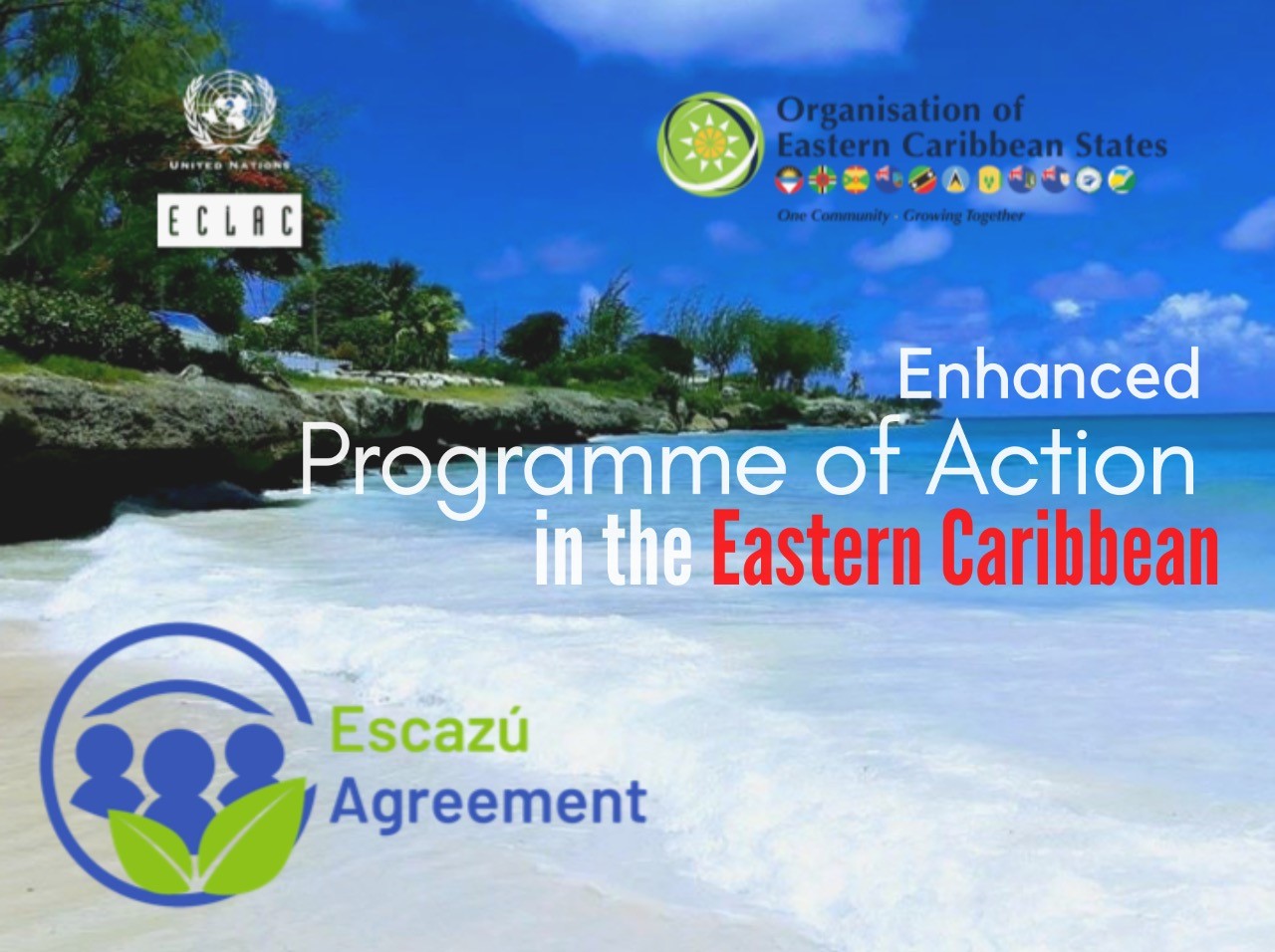ECLAC Reaffirms its Commitment to Supporting Caribbean Countries on Their Path Towards a Sustainable Recovery with Equality
Work area(s)
The United Nations regional organization ratified its “Caribbean First” strategy in times of pandemic, during a meeting of the Council of Ministers of the Organisation of Eastern Caribbean States (OECS).

The Economic Commission for Latin America and the Caribbean (ECLAC) ratified its commitment to supporting Caribbean countries on their path towards a sustainable recovery with greater equality after the crisis prompted by the COVID-19 pandemic, during a high-level virtual meeting held with ministers and authorities from more than 10 countries in the subregion.
The 7th Council of Ministers on Environmental Sustainability of the Organisation of Eastern Caribbean States (OECS) took place this Wednesday, June 24, under the outgoing presidency of Martinique and the incoming presidency of Saint Lucia. It was led by the OECS Director General, Didacus Jules, and drew the participation of environment ministers and authorities from Martinique, Saint Lucia, the British Virgin Islands, Grenada, Montserrat, Dominica, Guadeloupe, Saint Kitts and Nevis, Antigua and Barbuda, Anguilla, and Saint Vincent and the Grenadines.
Also participating were representatives of regional organizations and international agencies such as Patricia Espinosa, Executive Secretary of the United Nations Framework Convention on Climate Change (UNFCCC); Douglas Slater, Assistant Secretary General of the Caribbean Community (CARICOM); and Joseluis Samaniego, Director of ECLAC’s Sustainable Development and Human Settlements Division, speaking on behalf of the organization’s Executive Secretary, Alicia Bárcena.
In her message to the authorities attending the meeting, Alicia Bárcena expressed that the COVID-19 pandemic is, undoubtedly, the most complex development challenge that Caribbean countries have had to face, since it has severely affected their peoples and economies, further exposing the inequalities that exist in our societies.
She added that the Caribbean’s Gross Domestic Product (GDP) is expected to decline on average by 2.5% in 2020, due mainly to the collapse of the tourism sector and a drop in energy prices. In addition, the subregion is one of the most highly exposed to the impacts of climate change and has already suffered the devastating effects of natural disasters, extreme weather events, biodiversity loss, sea-level rise and ocean acidification.
On top of this, many Caribbean States – which have been classified as middle or high-income countries – must deal with high indebtedness, narrowed fiscal space and lack of access to concessional financing. “The pandemic exacerbates deep structural inequalities and imbalances that are undermining your development trajectory,” Bárcena indicated in her message.
“Your focus on recovery, regeneration and resilience to sustainably overcome the impact of COVID-19 puts you on the right track to shape a better tomorrow for all your people and build back better,” she told the authorities.
The senior United Nations official reminded them that ECLAC has repeatedly called for transformative, structural change to a development model that advocates for equality, leaving no one behind. The Commission has also affirmed that current production and consumption patterns are unsustainable, which is even more evident in a post-pandemic world. Hence, it is calling for prioritizing green, low-carbon and people-centered solutions to be able to effectively and sustainably overcome its effects.
“As I have tirelessly stressed, our recovery must be nature-based, or it will not last. We need to embrace a strategy that is advanced by the people for the people. So, where ECLAC is concerned, the Caribbean will remain a priority through our Caribbean First strategy,” Bárcena emphasized.
In her message, ECLAC’s Executive Secretary also praised the OECS’ leadership in the Caribbean Development and Cooperation Committee (CDCC), a subsidiary body of ECLAC, as well as in its support of implementation of the Samoa Pathway and the 2030 Agenda for Sustainable Development, through the presentation of Voluntary National Reviews by Saint Lucia in 2019 and Saint Vincent and the Grenadines, which is scheduled for 2020, at the High-Level Political Forum that is held under the auspices of the Economic and Social Council (ECOSOC) and the UN General Assembly.
Alicia Bárcena also reaffirmed ECLAC’s support regarding the problem of indebtedness in the Caribbean through its Debt for Climate Adaptation Swap Initiative, which includes the creation of a resilience fund. She also announced that the three countries of the OECS that are in the pilot stage of this program – Antigua and Barbuda, Saint Lucia, and Saint Vincent and the Grenadines – are now ready to initiate negotiations with creditors for the debt swaps.
Another example of cooperation with the OECS, Bárcena stated, lies in its leadership in the signing and ratification of the Regional Agreement on Access to Information, Public Participation and Justice in Environmental Matters (Escazú Agreement), which has been signed by five of the organization’s six independent States and ratified by three of them. In a similar vein, she also highlighted the memorandum of understanding signed by ECLAC and the OECS last May 19 to establish an enhanced program of action on the Escazú Agreement in the Eastern Caribbean.
“The leadership of the Eastern Caribbean, your leadership, is more necessary than ever. Allow me to express again ECLAC’s full and unwavering support to each and every one of your countries and territories in your individual and collective efforts to combat the effects of the pandemic for the welfare of your people and for the benefit of the planet,” Alicia Bárcena said upon concluding her remarks.
Related content

ECLAC and the OECS Establish an Enhanced Programme of Action on the Escazú Agreement in the Eastern Caribbean
The UN Regional Commission and the Eastern Caribbean regional integration organization agreed on a framework for enhanced cooperation and understanding to assist OECS Member States achieve the…
Subregional headquarter(s) and office(s)
Type
Country(ies)
- Caribbean
Contact
Public Information Unit
- prensa@cepal.org
- (56 2) 2210 2040
